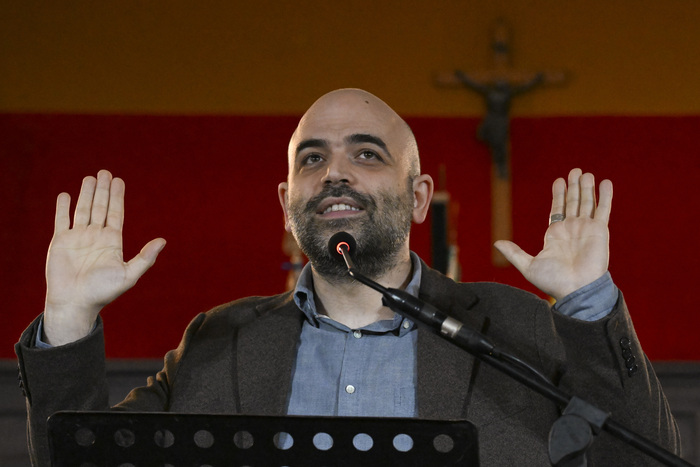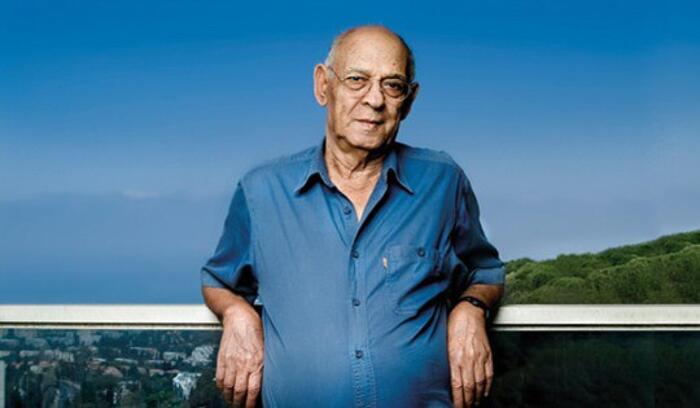Fernando Marías has died, a deeply cultured, generous man, capable of reinventing himself over and over again on all human and cultural levels and, probably, the most cheerful, universal, selfless and creative Bilbao that we have ever known. The writer born 63 years ago was the author of (at least) two memorable novels, essential for anyone who wants to learn from reading and not just be entertained. One was
La luz prodigiosa
(1992), a surprising fiction about a Lorca who would have survived his captors and who fights to make his way into hostile territory. These bursts of reinterpretation of the life of authors such as the great
Hamnet,
by Maggie O'Farrell (Asteroid Books) or the recently published
Melvill,
by Rodrigo Fresán (Random House Literature).
But that little novel by Marías was a foretaste, and a beautiful one, of that freedom of reinvention that he knew how to capture in the national drama that the poet from Granada embodied and that continues to stir up our problem with memory.
More information
Fernando Marías, the writer who loved the legend
And that capacity for reinvention is what marked his life from the abysses of alcohol to his complete recovery and which he reflected in his second (at least) memorable novel,
The World Ends Every Day
(2005), a complete nude, a honest, scandalous immersion in the suicidal impulses of addiction capable of dragging down whoever you love the most and in the fragile supports on which salvation can be sustained.
There was salvation for Marías, because he left alcohol behind, although he never realized how brittle the will is, because he was a constant militant of water and even beer 0.0 was anathema to him. In addition, he won awards such as the Primavera with
All the love and almost all the death,
the Nadal
with The child of the colonels
or the Brief Library with
The island of the father.
I met him at the last Black Week in Gijón, which chartered its own train, an old-fashioned train that slowly meandered from Madrid to the north, without a sad sandwich, with obligatory stops due to the cuts that the miners from León and Asturias staged on those days for some good cause, and all of us who lived through it remember arriving with a hole in the stomach, but new and fun friends.
His name will be forever linked to a Black Week (in Gijón) that —with or without its own train— always brought together quality people, like him.
Elegant, great conversationalist and, above all, owner of a sharp and intelligent humor, Marías was what you saw: one of those people capable of keeping the guy on stage or in the
famine
of that train with as many stops as those of a Western movie.
De facto feminist, visionary in so many things, cheerful, funny, she never shied away from her literary nudity, crudeness, damage, nor did she make up anything
And that was precisely another of his passion territories: cinema.
He studied it when he arrived in Madrid in 1975 and worked for a long time as a screenwriter, among others for his own
La luz prodigiosa,
which was made into a film in 2002 under the direction of Miguel Hermoso and was nominated for Best Adapted Screenplay at the Goya Awards.
But everything was not enough for his desire to experiment and reinvent himself and, in recent years, he jumped into the theater with his own monologues and shared projects, especially with Espido Freire.
His work
Tonight I will die
is another one of those round plots that managed to surprise me every time I saw it, whether it was among good friends at the Granada Noir festival or in a theater in Lavapiés, where he already premiered it on professional circuits and with him we died and were resurrected a thousand times. times.
Without fear and without hesitation he appeared before the public as if he had been acting all his life.
And he loved it.
The edition and cultural management were another of its versions, also full of quality.
She meticulously chose, elaborated and edited
H Negra
(Alrevés), a set of stories written by 22 women and illustrated by as many cartoonists that she amassed with courage and pride when we writers were barely a discussion table in which to group together.
De facto feminist, visionary in so many things, cheerful, funny, she never shied away from her literary nudity, crudeness, damage, nor did she make up anything.
count the darkness
“True courage is counting the darkness.
I have been living with them for a long time, psychoanalyzing myself and it does not create any trauma for me to admit my alcoholism, because I already got over it a long time ago, ”he told me in 2015 after publishing
La isla del padre
.
“I think that more than freeing myself from modesty to talk about my father, I have freed myself from modesty to talk about myself.
It's like entering the dark areas of myself.
I am protected by my father.”
That was one of the two projects that he wanted to undertake in his last years, where he still enjoyed iron health that only went awry a few weeks ago.
The other was about the death of his first wife, with whom he shared love and the abyss of alcohol.
He wanted to tackle both deaths—his father's and his wife's—and he wanted to do it relentlessly.
They say that
this book,
published a few months ago by Alrevés, is his best book.
And he wrote it without knowing that, after those two deaths, his death was coming.
Of that he will not be able to write.
It's our turn.






/cloudfront-eu-central-1.images.arcpublishing.com/prisa/G2P4LZSOWRHMHJ3HNXVEIKVORY.jpg)


